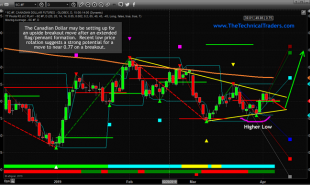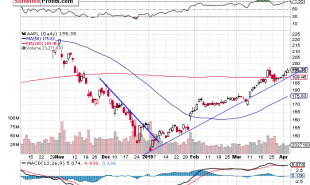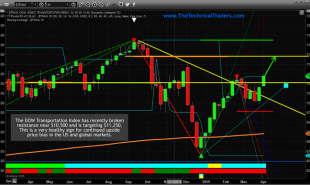
In September, 2012 the America Invents Act (AIA), despite its name, was enacted in an effort to control patent litigation which the big product manufacturers, such as Apple, want to avoid. They don’t want to pay for the use of the patents and they don’t want to be forced to pay by the courts either. The AIA makes suing for patent infringement much more difficult in very broad and indiscriminate ways. This puts inventors of technology in an untenable situation; why invest in R&D if you cannot protect or profit from your invention? The legislation lowers the risk involved when stealing technology that others have paid to develop.
Non-Practicing Entities (NPE) are companies with expertise in the field of patent licensing and litigation. NPEs, either partner with or buy-outright the intellectual property of small patent holders, and use their specialized knowledge of the industry to monetize this intellectual property. They are “white knights” fighting on the side of small entrepreneurs and intellectual property start-ups. Unfortunately, the big product manufacturers have so far managed to frame the discussion and paint the NPE’s as evil “patent trolls” and they themselves as the innocent victims. Over the last three or four years, America’s proposed patent reform legislation has severely reduced the stock price of NPEs: Acacia (NASDAQ: ACTG) down 91%, Interdigital (NASDAQ: IDCC) down 40%, and WiLan (NASDAQ: WILN) down 80%.
Americans are rightfully proud of their inventive, entrepreneurial spirit and the high standard of living that has resulted from those creative endeavours. At ANG Traders (www.angtraders.com) we don’t believe that the U.S. will commit economic suicide by allowing Patent Reform to stifle innovation and discourage R&D. Any new patent legislation should address abusive patent litigation while preserving the value and enforceability of legitimate patents, otherwise there will be little innovation in the future, and prolonged economic decline as a result.
We are wagering that the government will not pass any patent reform legislation without first making the necessary changes required to protect intellectual property rights. The market, however, has essentially written-off all NPEs on the assumption that patent reform will be passed with all the damaging clauses intact. This provides us with an important investment opportunity.
Our analysis has registered a bullish signal for WiLan (Nasdaq; WILN) an NPE that is well positioned to profit massively when the intellectual property landscape starts to improve. WiLan is a small NPE that, without exaggeration, made today’s wireless communications possible. WiLAN invented Wideband Orthogonal Frequency Division Multiplexing, or W-OFDM, a modulation technique that is now the standard for broadband wireless applications (visit here for more). Over the last decade, WiLan has evolved into an important player in the intellectual property market where they use their expertise to ensure that intellectual property owners, including WiLan itself, receive fair compensation for their investment in research and development.
WiLan owns outright or is in control of approximately 14 000 patents covering a wide array of technologies. They have 290+ companies under license, including most of the major tech entities; Cisco, Nokia, Panasonic, Samsung, BlackBerry, Sharp, Stryker, Sony and Toshiba. Since 2009, they have signed licenses worth in excess of $800 milllion, are currently in discussions with dozens of companies, and are litigating a number of cases. They have been signing new licenses at the rate of one license per week and in the last few days have signed both NEC (Grey Market: NIPNF) and Netflix (NASDAQ: NFLX). The ideas contained in WiLan’s patent portfolios have proven to be both useful and valuable
Third Quarter 2015 Highlights
- Revenues of $21.4 million
- Adjusted earnings* of $12.2 million, or $0.10 per basic share representing 57% of revenues
- GAAP net earnings of $0.8 million, or $0.01 per basic share
- Trailing twelve month revenues and adjusted earnings were $98.9 million and $56.0 million, respectively
- Signed 11 licenses in Q3 2015 and 28 licenses YTD Q3 2015
- Backlog (future revenues from signed patent license agreements) at September 30, 2015 was in a range of $190.0-$225.0 million
- Cash and cash equivalents and short-term investments at September 30, 2015 of $95.6 million
- Returned $5.1 million to shareholders in dividend payments
(Learn more here)
Two factors, outside of the patent legislation environment have impacted heavily on WiLan’s share price: First, WiLan suffered a major setback when a jury decision went against them in a litigation with Apple in 2013, and the second occurred earlier this year when WiLan cut its dividend from 7.9% down to 3.25%. The former situation is still in the hands of the appeal judges, which means that the earlier negative ruling could still be over-turned, and since the market has already priced in a loss, any form of dismissal would immediately boost the share price.
Cutting the dividend down to 3.25% was hard on the share price, sending it down to a five year low (see chart below), but it was a wise business move that will conserve cash and help to grow the business. In addition, corporate restructuring will reduce staff by 30% and focus on partnering with other patent portfolios in order to reduce costs by $8.0 to $10.0 million per year.
"It is well understood that the environment for patent licensing companies has been undergoing a number of changes that have significantly altered the performance and outlook for IP market participants," said Jim Skippen, CEO of WiLAN. "Against this backdrop, WiLAN has chosen to make a number of difficult decisions regarding our staffing and resource allocation. We believe these steps are essential to the long-term growth and strength of our business, and to our ability to continue delivering healthy profit margins." To this end, Jim Skippen has delayed his retirement plans and will lead WiLan through the restructuring. This is in contrast to the CEO of Acacia (Nasdaq: ACTG), Matthew Vella, who resigned after Acacia lost a major infringement case involving one of its premier patent portfolios. It is a vote of confidence that Mr. Skippen is staying on, and so is the fact that both he and other insiders have been buying shares on the open market lately (see insider positions here).

A possible risk and challenge in WiLan’s future would be if patent reform was to get rammed through the Legislature without changes, making it more difficult and costly to win against infringers in court. If this did come to pass, then the repercussions would be felt far beyond WiLan and the IP space in general; innovation would be stifled and the long-term effects of that on the U.S. economy as a whole would be severe. As stated earlier, we don’t think that is very likely, but the possibility has to be kept in mind.
WiLan’s stock price has also been negatively impacted by the confidential nature of its licensing agreements which prevents the disclosure of any specific financial details; Investors have no way of knowing the value of any particular deal and must wait until the quarterly results to get an idea of the company’s success. In addition, the inherent unpredictable nature of the patent licensing business makes it almost meaningless to provide guidance; no one can predict when or how many deals will be signed in the next quarter or the next fiscal year. Success, in other words, is “lumpy” and non-linear in the IP business, which tends to discourage many investors and is reflected in the share price.
WiLan is priced at slightly more than cash-on-hand, assigning no value to the rest of the business: the thousands of patents it owns/controls, the already-booked future earnings of $200 million, the on-going licensing success, and the potential windfalls from any of the dozens of litigation cases it is conducting. Except for the cash-on-hand, all of WiLan’s assets and all of its future earnings have been discounted 100%. This makes for very little downside risk, and the recent low provides a strong support to the share price.
In conclusion, WiLan (Nasdaq: WILN) is a “green-shoot” in the desert that is the intellectual property space and we expect significant growth in share value over the next twelve months.
ANG Traders
www.ANG traders.com
info@angtraders.com
Read more by ANGTraders







